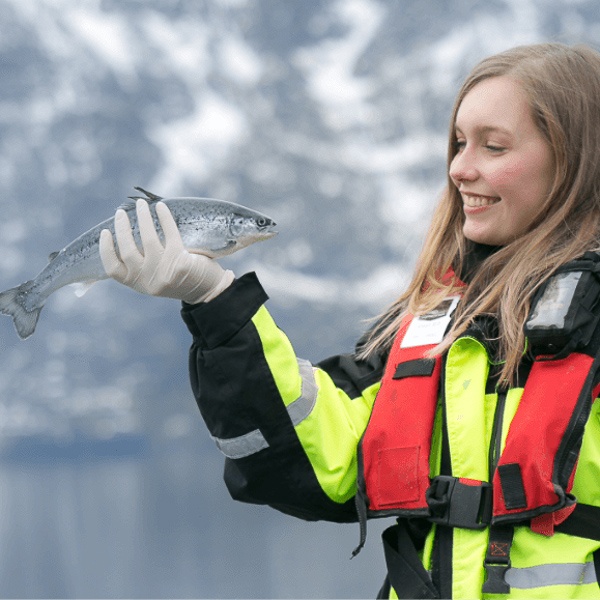Salmon farming is a good bet for your investment dollars
As more of the world turns to sustainable protein from the sea, salmon farmers will continue to show an increase in earnings this year with new projects, new jobs, and new technology.
By SeaWestNews
Salmon farming companies will continue to show an increase in earnings this year as more of the world turns to sustainable protein from the sea, a leading Nordic financial institution predicts.
Salmon prices are expected to rise or at least remain stable this year and this means salmon stocks constituted a good investment-buy, Danske Banke analyst, Knut-Ivar Bakken told the Norwegian business journal Finansvisen.
Danske Banke, which is Danish owned and has operations in at least 16 countries, expects the global demand for salmon to remain strong, with growth at around six to seven per cent likely over the remainder of the year.
The sector, Bakken added, had made a good start to 2019, with salmon prices up by three per cent and global supply increasing by five per cent.
Price expectations, however, have come down a little recently following a larger than expected growth in supply, but the overall trend remained positive.
Bakken pointed to Grieg Seafood, which he said will likely increase its share price, and Mowi to deliver higher profits and volume growth. Both have strident expansion plans in Canada.
Grieg Seafood has farming facilities in Finnmark and Rogaland in Norway, British Columbia and Shetland in the UK with an annual production of 100,000 tonnes.
In B.C. Grieg Seafood recently invested in two new $2-million state-of-the art feed barges, a new net cleaning workboat, a new workboat to support ongoing harvesting projects, and is awaiting delivery of a $50 million well boat that will employ enhanced technology to combat sea lice infestation.
In Newfoundland and Labrador, Grieg NL is establishing its $250-million Placentia Bay aquaculture project. The provincial government said 800 people will be employed when full production is reached.
Mowi, previously known as Marine Harvest, is the world’s largest producer of Atlantic salmon. The company employs 14,537 people, and is represented in 25 countries. In 2018 the company had a turnover of EUR 3.8 billion.
The company has about 600 employees working at its salmon farms and processing plants in British Columbia, raising 45,000 tonnes of Atlantic salmon each year.
Mowi, this month took delivery of the largest and most technologically advanced ship to ever serve the Canadian aquaculture industry to revolutionize the treatment of sea lice in B.C. The Aqua Tromoy cost about $35 million.
Its assets in Atlantic Canada include one hatchery and two farming licenses in New Brunswick, seven farming licenses in Newfoundland and one processing plant in Newfoundland. Last year it acquired New Brunswick-based Northern Harvest for CAD 315 million.
British Columbia-based Cermaq, Canada’s second largest salmon farming company, is also looking to expand its operations in Atlantic Canada.
Cermaq, which is owned by Mitsubishi, said the province of Nova Scotia has granted it four options to lease and the company intends to launch site investigations, and feasibility studies, as well as extensive public engagement. The expansion, if successful in Nova Scotia, could mean up to 300 new jobs in that province.
Danske Banke said other salmon farming companies to watch include Austovell, among the smaller breeders and Norway Royal Salmon which also showed good, long-term growth promise.
Bakken, the bank’s analyst, predicted that despite experiments with new types of production, particularly in relation to land based farming, there was likely to be little change in methods in the medium term.
‘Regardless of whether land based or offshore farming becomes a success, volumes will not be large enough to affect market balance over the next four years,’ he said, according to the business journal, Finansvisen.
Image courtesy of mowi.com
Related Stories
Cermaq eyes Nova Scotia for new salmon farms

